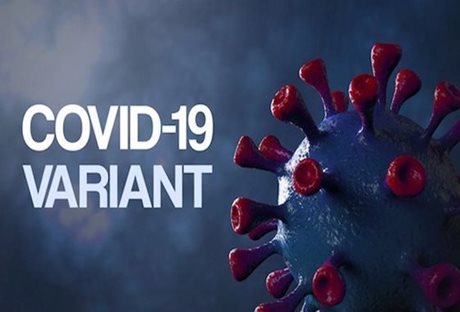
WHO tracking four COVID-19 variants of concern
- Health Sector
- No Comment
- 309
The World Health Organisation says it is tracking four COVID-19 variants of concerns.
According to the WHO, the variants of concern are B.1.17, B.1.355, P.1, and B.1.617.
Speaking in a podcast tagged: ‘ScienceIn5’ on Wednesday, Infectious Disease Epidemiologist and COVID-19 Technical Lead for WHO, Maria Van Kerkhove said the virus that causes the COVID-19 virus is evolving.
“Currently, there are four variants of concern that WHO is tracking around the world.
“The B.1.17, which is first identified in the United Kingdom, the B.1.355, which is first identified in South Africa, the P.1 variant which was identified Japan from travellers from Brazil.
“And now we’ve recently classified the B.1.617 which was first identified in India.
“Now, it’s really important that you look at the latest information from WHO because this is a fast-changing situation.
“The latest information we have on all of our variants of interest and variants of concern that we are tracking are released on our website in our weekly epidemiology sitemap.
“Variants of interest have properties, have mutations that have been identified that need further study.
“Variants of concern have demonstrated changes. For example, you may have increased transmissivity, there may be a change in disease presentation or severity, or there may be a change in our ability to control the virus with public health and social measures or the use of diagnostics therapeutics and vaccines.”
She said that the current variant of concern is B.1.617, which has demonstrated increased transmissibility.
“So, you will notice when I said a variant of concern, I named it by number. For example B.1.617, and I didn’t call it a country name variant, because that adds a stigma associated with these variants.
“And it’s important that surveillance is occurring around the world and we detect these variants very quickly, the information is shared so that it can be analysed, so that we understand the potential implications once they are identified,” she noted.
The infectious disease expert urged everyone to do everything that they can to prevent infection and reduce the spread of the SARS-CoV-2 virus, whether it is a virus variant, a variant of interest, or a variant of concern or not.
“The SARS-CoV-2 virus can infect us and it can spread between people.
“Also, it means to take all of the measures that you can to reduce your exposure in the possibility of you getting infected.
“It means physical distancing, avoiding crowded spaces, spending more time outdoors than indoors.
“If you are indoors, make sure that there’s good ventilation.
“It’s about having clean hands and wearing a mark properly, over your nose and your mouth, practicing respiratory etiquette, being well informed.
“And no matter what you do, know what hour risk is and take steps to lower your risk.
“And lastly, when it’s your turn, get vaccinated,” she advised.
According to her, there are many studies underway studying the properties of each of these variants of concern in terms of transmissibility, severity, and impact on diagnostics, therapeutics, and vaccines.
“So far from the information that we have from the studies that are underway and the results that are available, the public health and social measures, the diagnostics, therapeutics, and vaccines do work against these virus variants.
“We are learning every day and as soon as we have more information, we will share this with you,” she said.
Written By: Lara Adejoro
Source: Healthwise. punch ng
Link: https://healthwise.punchng.com/who-tracking-four-covid-19-variants-of-concern/





